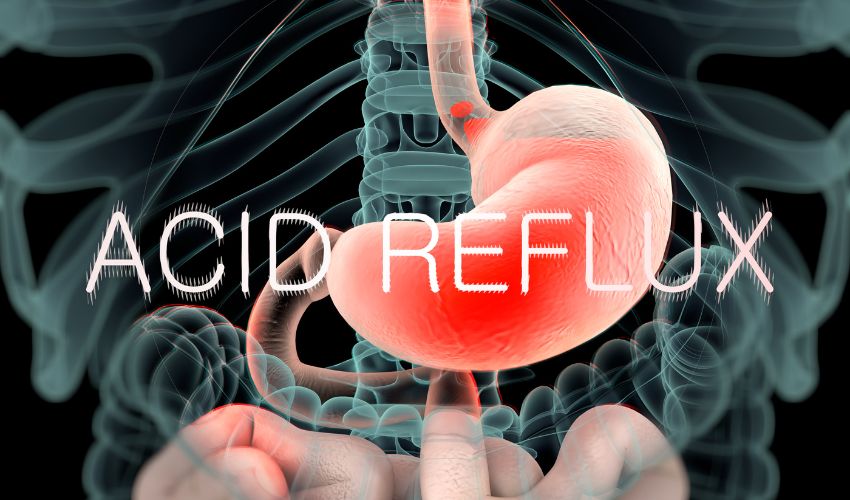Acid reflux, also known as gastroesophageal reflux disease (GERD), is a condition that occurs when stomach acid flows back into the esophagus, causing a burning sensation in the chest. This condition can be caused by a variety of factors, including eating habits, obesity, pregnancy, and smoking, among others. While occasional acid reflux is common and usually not a cause for concern, frequent or severe symptoms can lead to complications such as esophagitis, Barrett’s esophagus, and even esophageal cancer. In this article, we’ll explore the symptoms, causes, and treatment options for acid reflux.
Symptoms of Acid Reflux:
The most common symptom of acid reflux is heartburn, a burning sensation in the chest that often occurs after eating or at night. Other symptoms may include regurgitation of stomach acid into the mouth, nausea, difficulty swallowing, hoarseness, chronic cough, and chest pain. These symptoms can range from mild to severe, and may be exacerbated by certain foods and drinks, stress, and lying down after eating.

Causes of Acid Reflux:
Acid reflux is caused by the weakening of the lower esophageal sphincter (LES), a ring of muscle that separates the esophagus from the stomach. When the LES is weakened, stomach acid can flow back into the esophagus, causing irritation and inflammation. Some common factors that can weaken the LES include:
- Eating habits: Eating large meals, eating too quickly, or lying down after eating can all contribute to acid reflux.
- Obesity or being overweight: Excess weight puts pressure on the stomach, which can push stomach acid back into the esophagus.
- Pregnancy: The pressure of the growing uterus on the stomach can lead to acid reflux.
- Hiatal hernia: A hiatal hernia occurs when the upper part of the stomach protrudes into the chest through the diaphragm, causing acid reflux.
- Smoking or exposure to secondhand smoke: Smoking can weaken the LES and increase acid production, while exposure to secondhand smoke can irritate the esophagus.
- Certain foods and drinks: Spicy or fatty foods, citrus fruits, chocolate, alcohol, and caffeine can all trigger acid reflux.
- Medications: Certain medications, such as aspirin and other nonsteroidal anti-inflammatory drugs (NSAIDs), can irritate the esophagus and cause acid reflux.
Treatment Options for Acid Reflux:
There are several treatment options available for acid reflux, ranging from lifestyle changes to medications and surgery. Some of the most common treatment options include:
- Lifestyle changes: Making changes to your eating habits, weight management, and smoking habits can help reduce the frequency and severity of acid reflux symptoms.
- Medications: Antacids, H2 blockers, proton pump inhibitors (PPIs), and prokinetics are all medications that can be used to treat acid reflux.
- Surgery: In severe cases of acid reflux that do not respond to other treatments, surgery may be necessary to repair the LES and prevent stomach acid from flowing back into the esophagus.

FAQs:
Can acid reflux cause cancer?
Chronic acid reflux can increase the risk of developing esophageal cancer, although it is relatively rare.
Can acid reflux be cured?
While there is no cure for acid reflux, it can be managed with lifestyle changes and medication.
Is acid reflux a sign of a heart attack?
Acid reflux can cause chest pain that is often mistaken for a heart attack. If you are experiencing chest pain, it is important to seek medical attention immediately to rule out a heart attack.
Can stress cause acid reflux?
Stress can exacerbate acid reflux symptoms, but it is not a direct cause.
Can acid reflux affect your breathing?
Acid reflux can cause respiratory problems, such as asthma and chronic cough.
Conclusion:
Acid reflux can be a frustrating and uncomfortable condition, but there are effective treatment options available. By making lifestyle changes, such as avoiding trigger foods and elevating the head of your bed, and taking medication as prescribed by your doctor, you can manage your symptoms and improve your quality of life. If you are experiencing symptoms of acid reflux, it is important to seek medical attention to determine the underlying cause and develop an effective treatment plan. With the right treatment and management, you can live a healthy, comfortable life free from the symptoms of acid reflux.






















